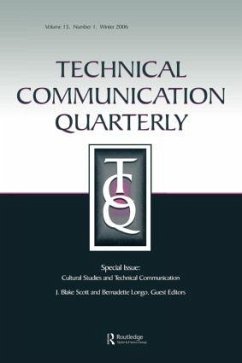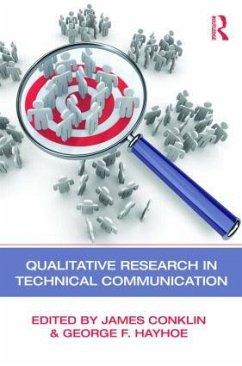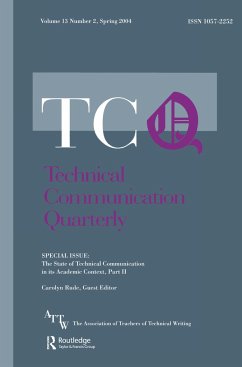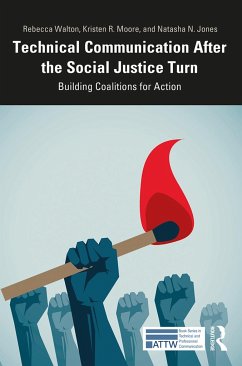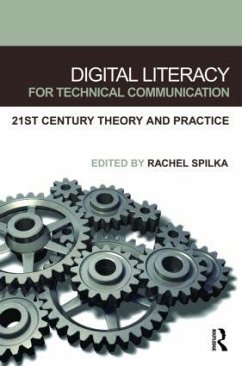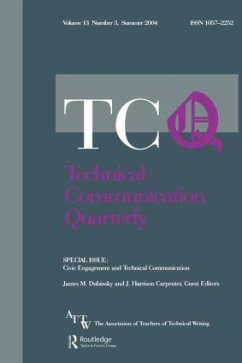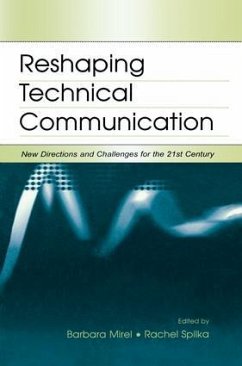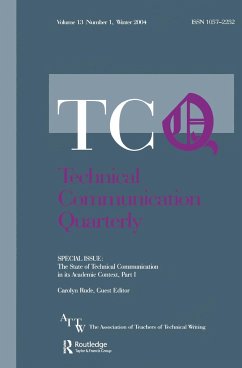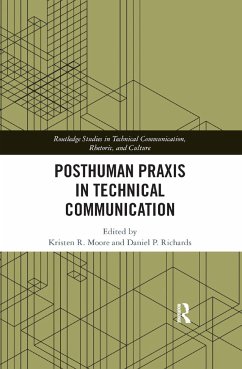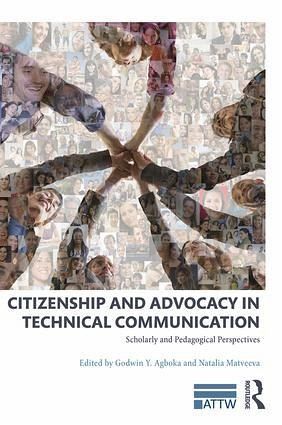
Citizenship and Advocacy in Technical Communication
Scholarly and Pedagogical Perspectives
Herausgeber: Agboka, Godwin Y.; Matveeva, Natalia

PAYBACK Punkte
27 °P sammeln!
In Citizenship and Advocacy in Technical Communication, teachers, researchers, and practitioners will find a variety of theoretical frameworks, empirical studies, and teaching approaches to advocacy and citizenship. Specifically, the collection is organized around three main themes or sections: considerations for understanding and defining advocacy and citizenship locally and globally, engaging with the local and global community, and introducing advocacy in a classroom. The collection covers an expansive breadth of issues and topics that speak to the complexities of undertaking advocacy work ...
In Citizenship and Advocacy in Technical Communication, teachers, researchers, and practitioners will find a variety of theoretical frameworks, empirical studies, and teaching approaches to advocacy and citizenship. Specifically, the collection is organized around three main themes or sections: considerations for understanding and defining advocacy and citizenship locally and globally, engaging with the local and global community, and introducing advocacy in a classroom. The collection covers an expansive breadth of issues and topics that speak to the complexities of undertaking advocacy work in TPC, including local grant writing activities, cosmopolitanism and global transnational rhetoric, digital citizenship and social media use, strategic and tactical communication, and diversity and social justice. The contributors themselves, representing fifteen academic institutions and occupying various academic ranks, offer nuanced definitions, frameworks, examples, and strategies for students, scholars, practitioners, and educators who want to or are already engaged in a variegated range of advocacy work. More so, they reinforce the inherent humanistic values of our field and discuss effective rhetorical and current technological tools at our disposal. Finally, they show us how, through pedagogical approaches and everyday mundane activities and practices, we (can) advocate either actively or passively.





